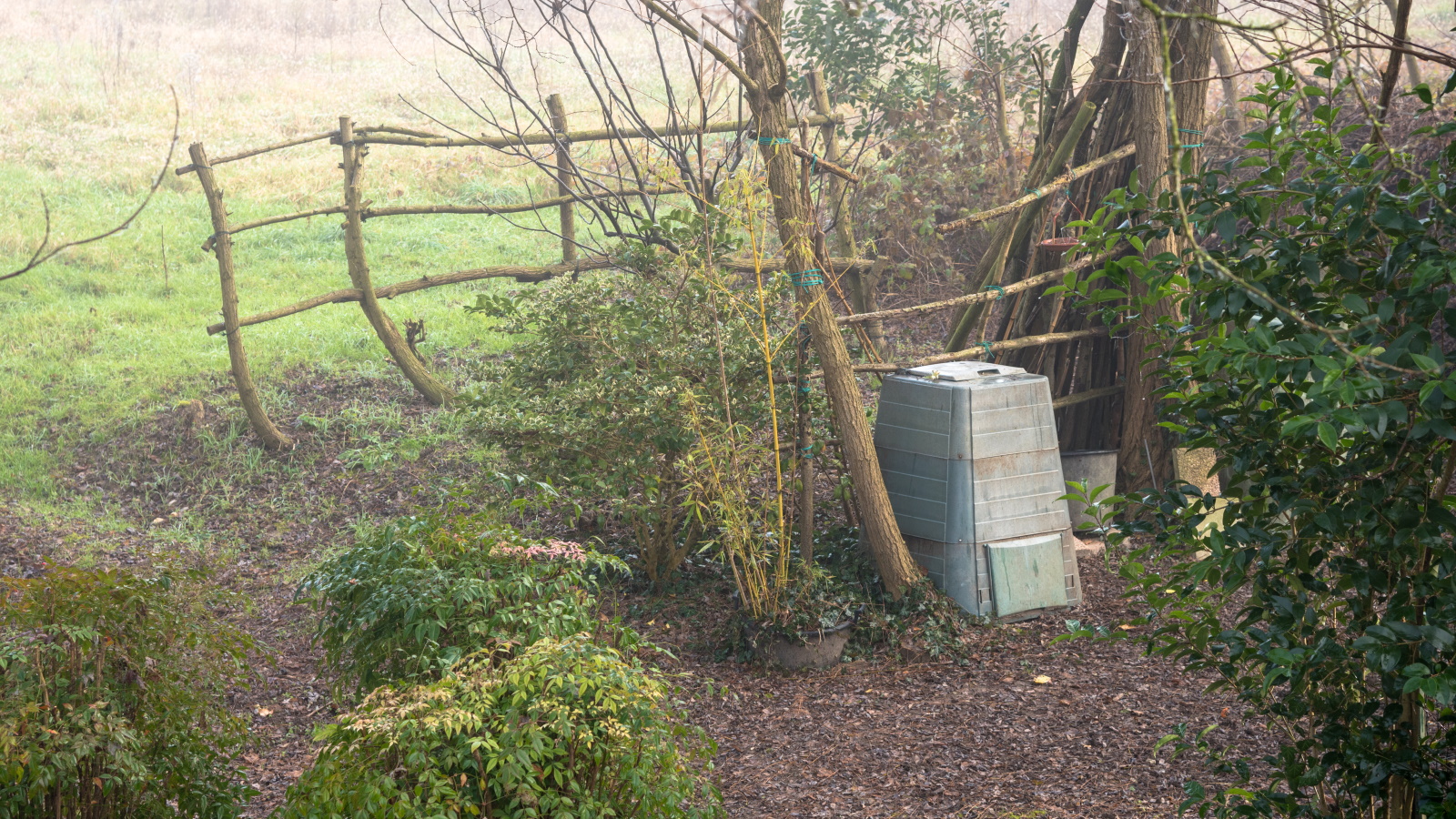
There are lots of things to get in order in the yard for the winter season. While preparing your plants for frost might be at the top of your list, something you may have forgotten about is your compost bin.
More specifically, if you make compost, you need to put some measures in place to stop compost freezing in winter. Failing to do so will slow your composting down. 'If your compost pile freezes, don’t worry - it's a temporary setback, not a disaster,' reassures Lauren Click, founder of Let's Go Compost. 'While the microbial activity will pause when temperatures drop below freezing, the organic material in your pile will still undergo some decomposition, albeit slowly,' she explains.
So, when thinking about how to overwinter a garden, make sure to give some thought to your compost bin. If you're hoping to keep it productive during winter, try these methods to stop your compost freezing.
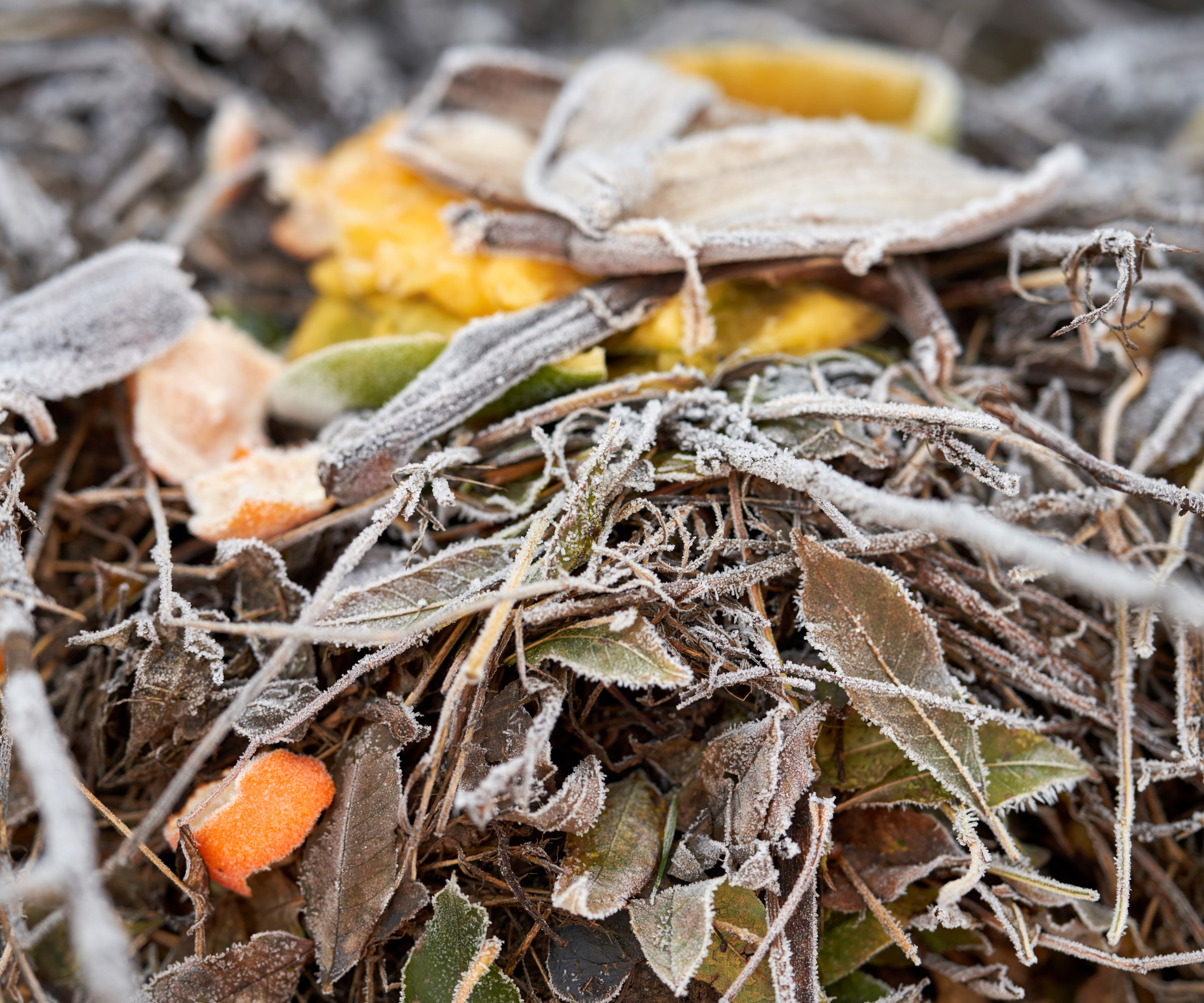
5 ways to stop compost freezing in winter
As Lauren notes, it isn't game over for your compost if it does freeze: 'Once warmer weather returns, the microbes will reawaken and resume breaking down the materials. Think of a frozen compost pile as being in hibernation - it’s not active, but it’s not ruined either,' she says. Nevertheless, you can keep your compost productive by doing these things to stop it freezing.
1. Keep your compost bin insulated
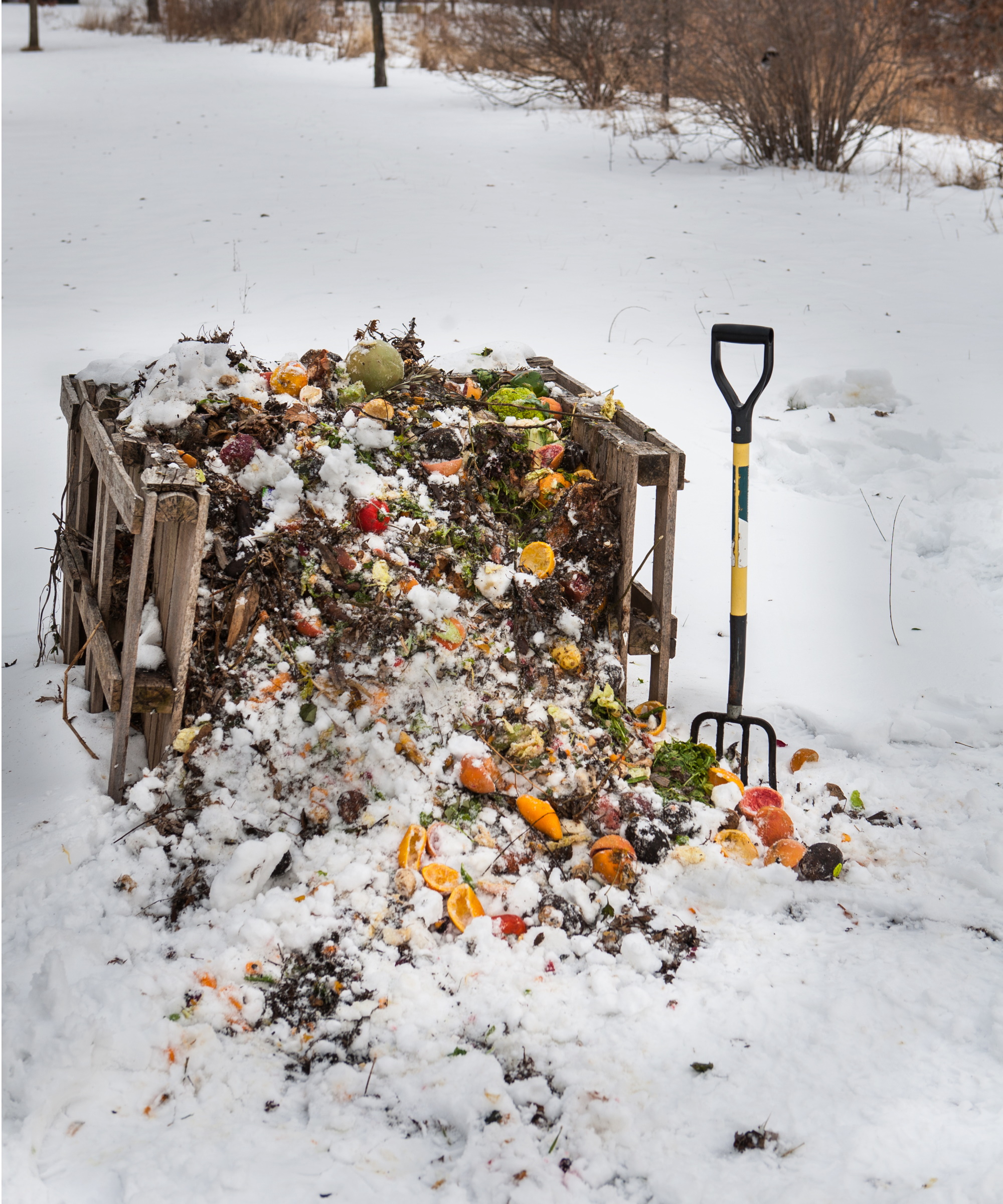
The first thing to do to stop compost freezing is insulate your compost bin. There are a few different ways to do this, all of which help retain heat to keep microbes active.
'Composting relies on thermophilic microorganisms, which thrive at high temperatures (104-158°F). Freezing disrupts their activity,' explains Lauren. 'Try surrounding the bin with materials like straw bales, hay, or wood chips,' she suggests.
You can also use cardboard or foam panels to insulate the compost bin walls, or simply cover your compost bin with a tarp (from Amazon). This is also a method used to speed up composting at any point in the year.
When insulating your compost bin, make sure not to make the common composting mistake of not allowing any air in: 'Ensure airflow is not completely blocked. Microorganisms require oxygen to function - this is called aerobic decomposition,' Lauren explains. This will help stop compost smelling bad, too.
2. Avoid high-moisture ingredients
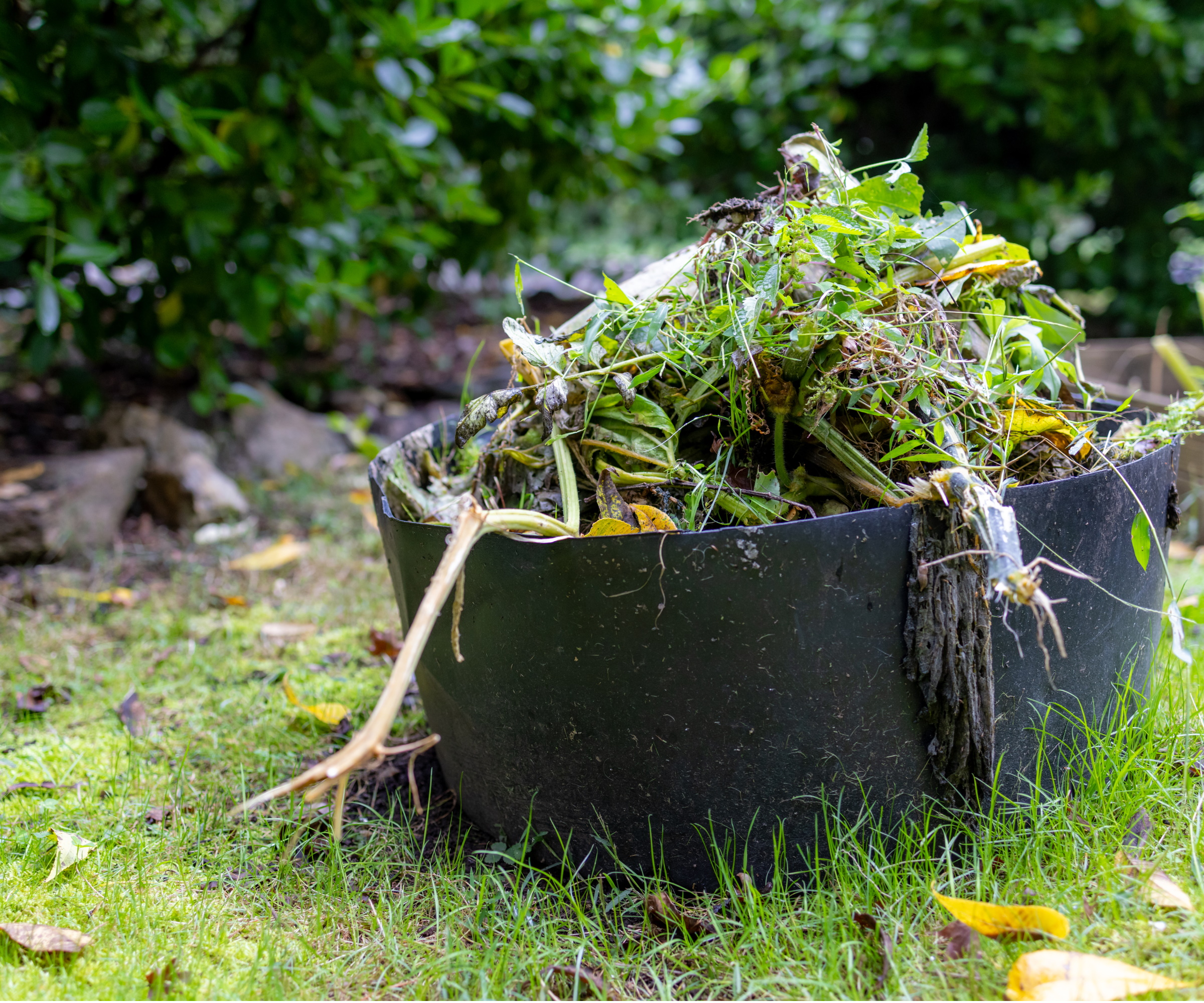
You can also stop compost freezing by reducing the amount of liquid in your heap through drier materials and unusual compost ingredients.
'High-moisture materials (e.g., food scraps with lots of liquid) can freeze easily, slowing decomposition,' says Lauren. 'Instead, focus on brown materials like dried leaves or shredded cardboard, which balance moisture and provide carbon,' she adds.
Although it's important to have the right balance of greens and browns (nitrogen and carbon materials), and one of no-dig expert Charles Dowding's composting tips is to ensure you have sufficient greens, it's wise to turn your focus to browns in winter.
'It's better to mix fresh food scraps with absorbent materials, like sawdust or straw, before adding them to the pile,' Lauren advises.
3. Keep turning your compost
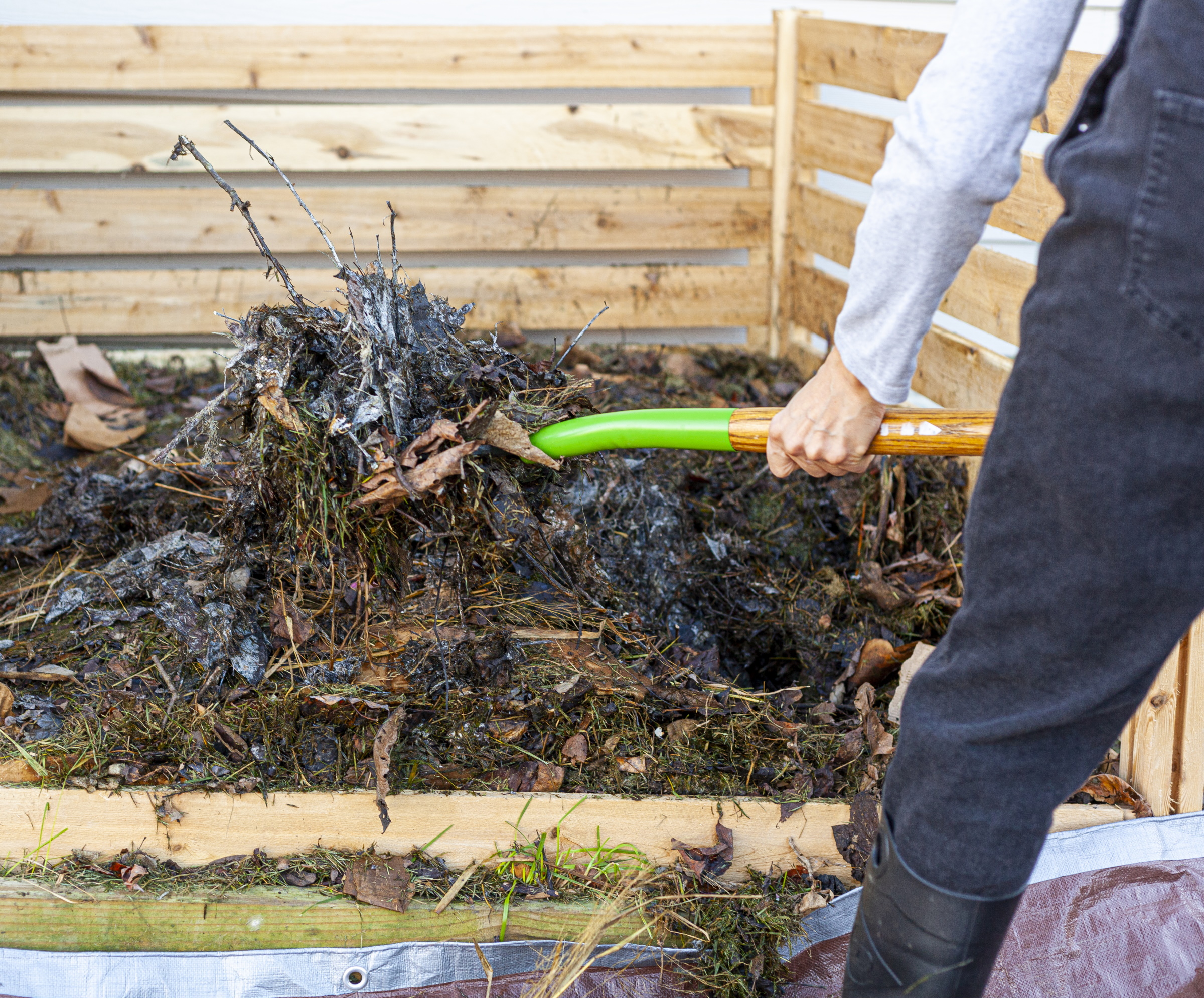
Another key task to do all year round is turn your compost, but this is especially important when trying to stop compost freezing.
'Turning aerates the pile, providing oxygen for microbes and redistributing heat from the center to cooler outer layers,' Lauren explains. 'This also prevents compaction, which can slow decomposition,' she adds.
An aerated compost heap is less likely to have an unpleasant odor, too.
'Use a pitchfork or compost aerator tool to mix the pile at least once every two weeks,' says Lauren. 'Focus on mixing outer layers into the warmer core of the pile,' she adds.
As well as using a compost aerator tool (from Amazon), you can also use a tumbling composter (from Amazon).
4. Move your compost bin somewhere warmer
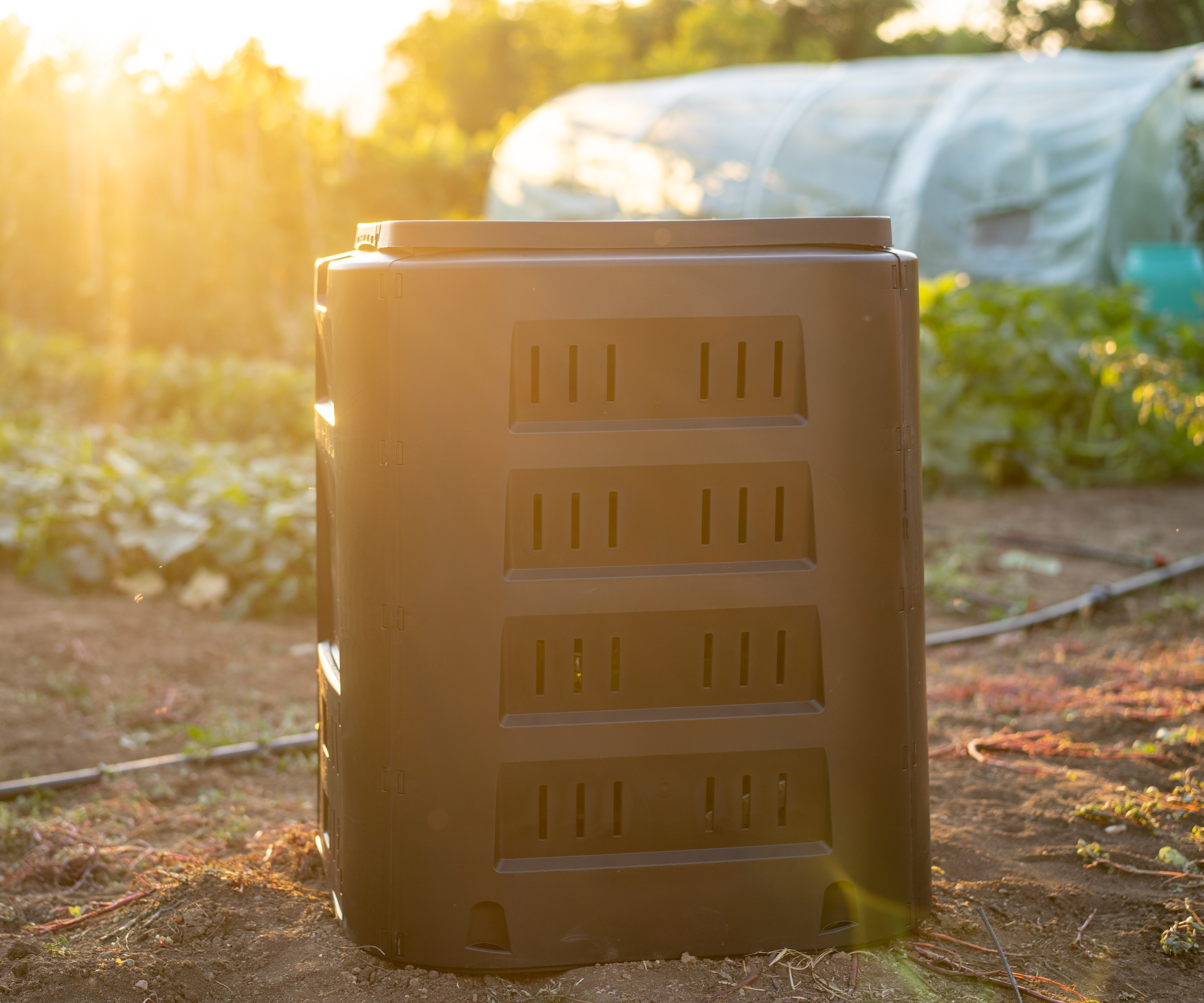
It sounds obvious to say, but the thing that will stop compost freezing is warmth. Therefore, positioning your compost bin somewhere warmer is a fail-safe way to provide extra heat.
'If possible, relocate your bin to a sunnier, sheltered spot for the season,' says Valeria Nyman, gardening expert from gardening app Taim.io. 'Even a small rise in temperature - like being against a south-facing garden wall - can make a huge difference,' she adds.
Housing your compost bin in a greenhouse is a great way to use a greenhouse in winter, or you could even bring it inside a conservatory.
Of course, this is only doable if you have a small compost bin to work with. If you have made a composter from pallets in a permanent spot, it's best to use other methods to stop compost freezing.
5. Add a heat source
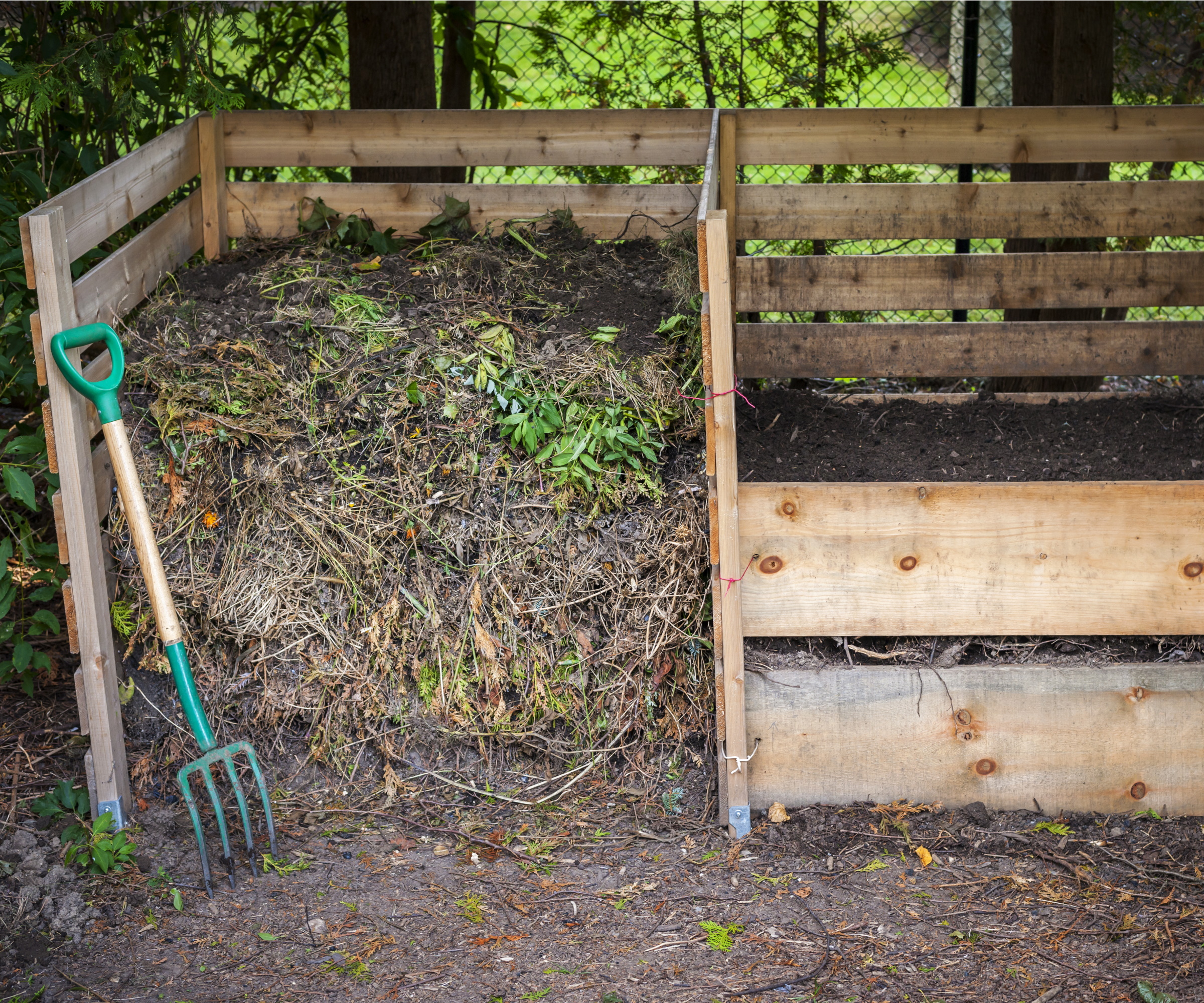
There are plenty of ways to add heat to your compost pile to prevent it freezing during winter, like heat sources. This can be a number of things:
'For extra heat, add a lightbulb wrapped in a glass jar for safety. It’s like giving your compost a tiny electric fireplace,' suggests Valeria.
You can also try installing a heater above or at the sides of your compost bin, or use a hot water bottle (from Walmart).
'Make sure to also place a black tarp or solar blanket (from Amazon) over the bin to capture heat,' Lauren advises.
FAQs
How do you hot compost in winter?
Hot composting refers to composting that uses heat to break down materials at a faster rate. To hot composting in winter, you need to put some measures in place to retain heat. This includes providing insulation, making your pile bigger and keeping it covered to protect it from frost.
Should you defrost frozen compost?
If you don't put measures in place to stop compost freezing in winter, it's likely to be affected by frost. This isn't something to worry about, however, as it doesn't ruin your compost but simply pauses the decomposition process. You can just wait for it to thaw as the weather gets warmer.
If you want to rather keep your compost productive during freezing temperatures, you can defrost compost by covering it with a black tarp, breaking it up with a shovel, adding insulation to the walls, and adding warm materials, among other methods.
Knowing how to stop compost freezing is just one of the things to do to maintain compost in winter. Other essential tasks include monitoring moisture levels and maintaining a good size heap. You can also apply some of these methods when using a wormery for compost to keep the worms active during winter.







